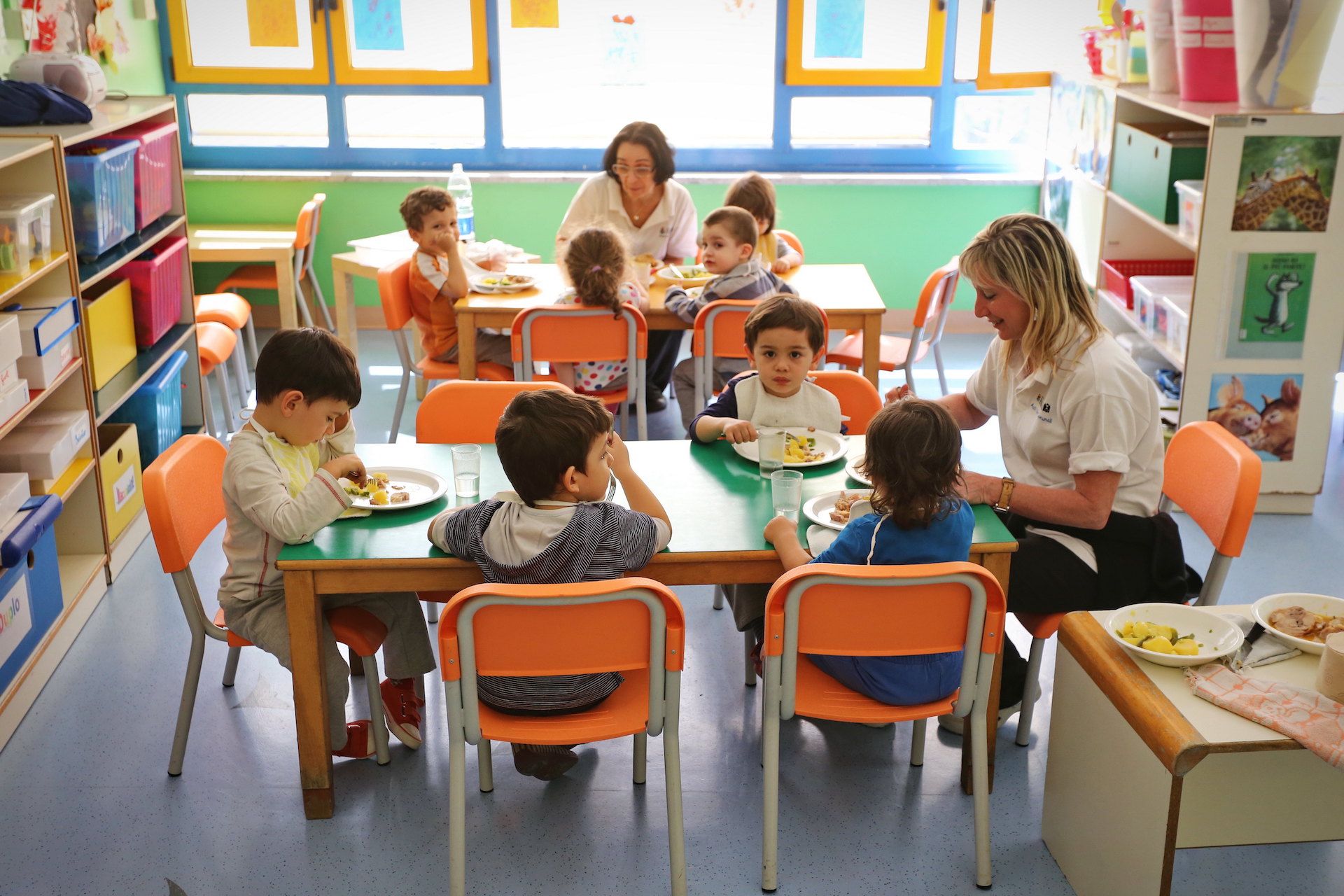Childcare and family life in Spain: What to expect

Spain is widely regarded as one of the most family-friendly countries in Europe. Children are not only welcomed but celebrated in everyday life. You will often find little ones joining family dinners, running around local plazas, or being fussed over by waiters and shopkeepers. It is a culture where family is central and children are visibly part of the community.
For expat families, this welcoming atmosphere can make a big difference. The adjustment to a new country is never easy, but knowing that your child will be included and supported helps ease the transition. Spanish families often rely on a mix of help from relatives and formal childcare. In cities and towns, working parents typically use nurseries, crèches, or hire in-home nannies. These options are generally more affordable than in many other European countries, especially the UK and USA.
While the social attitudes are warm, the structure of the childcare system can still feel unfamiliar. Parents will find a wide range of choices from low-cost public nurseries to bilingual Montessori-style care and international private options. This guide will walk you through the types of childcare available, how to access them, what they cost, and what to expect culturally and practically.
Whether you are looking for full-time care while you work or occasional support to balance your days, Spain offers more flexibility than you might think.
Understanding childcare in Spain

Childcare in Spain is structured around a mix of public and private options, with regional differences in availability and affordability. While some families rely on grandparents for daily help, many expat families need formal childcare services. Public nurseries and subsidised crèches are common, but demand can be high. Private providers and at-home carers fill in the gaps, especially in larger cities and coastal towns with international communities.
Culturally, Spain is known for its family-oriented lifestyle. Children are welcome in most public places, and there is a strong emphasis on early socialisation and community. This cultural value is reflected in the availability of group childcare from a young age, as well as the structure of the school day, which often includes long lunch breaks and optional after-school care.
If you are moving to Spain from a country where private nannies are the norm, you will find a slightly different balance here. Families typically blend formal education with informal support from family members, neighbours, or part-time carers, particularly during holidays or school closures.
Learn more about the best places to raise a family in Spain.
Crèches and nurseries (guarderías)

Guarderías (nurseries or crèches) are the most common form of formal childcare for children under the age of three in Spain. There are two types: public (guarderías públicas) and private (guarderías privadas).
Age and hours
Most guarderías accept children from as young as four months up to age three, when children typically transition to preschool (infantil) in the Spanish education system. Opening hours usually span from 8:00am to 5:00pm, though this can vary depending on the region and whether it is a public or private facility.
Costs
Public nurseries are state-subsidised, which means costs are based on income and can range from as little as €50 to €400 per month. Private nurseries tend to cost more, usually between €300 and €700 per month. In both cases, there may be additional fees for meals, nappies, and educational materials.
According to Expatica, some public nurseries also include meals and basic supplies in their monthly fees, though others may charge separately.
How to enrol
To enrol your child in a public nursery, you will typically need to apply during the annual registration period (usually in spring), provide proof of residence (padrón), income documentation, and your child’s health records. Private nurseries may offer rolling admissions and often require fewer formalities, but it is still wise to apply early, especially in high-demand areas.
Discover how to find the right school for your expat family.
Hiring a nanny or au pair
If you prefer more flexible or personalised care, hiring a nanny (niñera) or au pair may be the right option.
Nannies in Spain
Nannies can be hired full-time, part-time, or on an ad hoc basis. Hourly rates vary depending on the region and the nanny’s experience, but typical wages range from €8 to €15 per hour. Live-in arrangements may reduce the hourly rate, though you will need to provide accommodation and meals.
Spanish law requires that domestic workers, including nannies, be registered with Social Security and receive a legal employment contract. This ensures they are entitled to paid holidays, sick leave, and other benefits. Families must register as employers, which can be managed through Spain’s Seguridad Social office or online portal.
Au pairs in Spain
An au pair is a live-in caregiver, usually from another country, who provides part-time childcare in exchange for room, board, and a small stipend. Au pairs are typically aged 18 to 30 and may stay for several months under an official agreement. This arrangement is more cultural than contractual and works best for families looking for light childcare, cultural exchange, and language support.
The monthly stipend for au pairs is usually between €200 and €300, with expectations of around 25 to 30 hours of work per week. You can find au pairs through agencies or platforms like AuPairWorld, and while there is less red tape than with a formal nanny, it is still advisable to outline expectations clearly in writing.
Private childcare options

Beyond traditional nurseries, Spain also offers a range of private childcare models to suit different educational philosophies, work schedules, and language goals.
Montessori and alternative education
Montessori and Waldorf-style nurseries are increasingly popular in Spain’s larger cities and expat hubs. These schools often emphasise independence, natural materials, and a flexible curriculum. They usually cater to children aged 18 months to six years and may have bilingual teaching.
Fees range from €400 to €1,200 per month depending on location and resources.
Bilingual and International Nurseries
For families who want their children to learn English, French, or another language from a young age, bilingual nurseries and international early years programmes are a great fit. These schools typically follow the early stages of British, American, or IB curriculums and are designed to ease children into international primary schools.
You will find these schools in urban centres and expat-heavy regions like Madrid, Barcelona, Valencia, and the Costa del Sol. They may also offer extended hours and holiday care.
Compare international schools in Spain for older children.
Financial considerations and government support
Childcare in Spain is widely considered more affordable than in countries such as the UK or the United States. However, the true cost can vary depending on the type of care you choose, your region, and whether you qualify for any government assistance. It is important to look beyond the headline figures and consider the full picture, including additional expenses and financial support schemes.
Comparing costs
- Public nursery: €50 to €400 per month
- Private nursery: €300 to €700 per month
- Montessori/international nursery: €400 to €1,200 per month
- Nanny: €8 to €15 per hour
- Au pair: €200 to €300 per month, plus living costs
These costs are generally lower than in Northern Europe, particularly for nurseries and crèches. Hiring a nanny or enrolling in a private international nursery will place you at the higher end of the scale. Au pairs offer an economical solution for families with spare space and a willingness to take on more of a host role.
It is also worth noting that while public nurseries are the cheapest option, places are limited and enrolment can be competitive in some areas.
Hidden costs to watch out for
In addition to regular fees, families should budget for:
- Enrolment and registration fees: Usually charged by private nurseries and some semi-private centres
- Uniforms, supplies and meals: Some nurseries require families to pay for nappies, snacks, bedding or specific clothing
- Holiday cover: Many nurseries close for part of August or around local holidays, so you may need backup care during those periods
- Transport: Not all nurseries provide transport, especially in rural areas
Always request a full fee breakdown before enrolling to avoid surprises later.
Government support
The Spanish government and many autonomous communities offer financial support to help families cover the cost of childcare, particularly for children under the age of three. Some of the most common forms of support include:
- Income-based nursery subsidies: Offered by local or regional authorities and usually available for both public and private nurseries
- "Cheque Guardería" programme (Madrid region): This childcare voucher can provide monthly financial aid to working parents using private nurseries. Applications typically open once a year and are subject to income thresholds
- Tax deductions: Working parents who are registered with Social Security may be eligible for tax deductions on childcare expenses, especially if their child is under three. These deductions can be claimed when filing your annual Spanish tax return
In regions like Catalonia and Andalusia, additional support may be available for single parents, large families, or families with children who have special educational needs. Always check with your local town hall (ayuntamiento) or autonomous community’s education department for the latest available schemes.
You can also consult the EU Your Europe portal for further guidance on childcare rights and support available to residents in Spain.
Tips for parents relocating with young children

Relocating to Spain as a family involves more than just finding a house and a nursery. Here are a few practical tips to help smooth the transition:
- Start early: Apply for public nursery spots months in advance, and research private providers well before your move.
- Learn the language: Even a basic level of Spanish will help with paperwork, parent meetings, and daily communication.
- Get empadronado: Registering at your local town hall (padrón) is essential for accessing public services, including childcare.
- Build a support network: Join local parenting groups, expat forums, or Facebook communities to meet other families.
- Be flexible: Spanish routines may differ from what you are used to, with later meal times and a more relaxed pace.
If you're planning the move, you might be interested in finding out how much does it cost to buy property in Spain.
Final words on childcare in Spain
Finding the right childcare in Spain is a key step in making your family’s move a success. Whether you choose a public nursery, a bilingual Montessori school, or a live-in au pair, there are plenty of options to match your values, budget, and schedule. Spain’s warm culture and child-friendly lifestyle make it a great place to raise little ones while enjoying the benefits of Mediterranean living.
If you are ready to explore family life in Spain, Kyero can help you find the perfect home in a neighbourhood that supports your childcare needs. Start your search today and take the next step towards your family’s new adventure.





Be the first to comment!